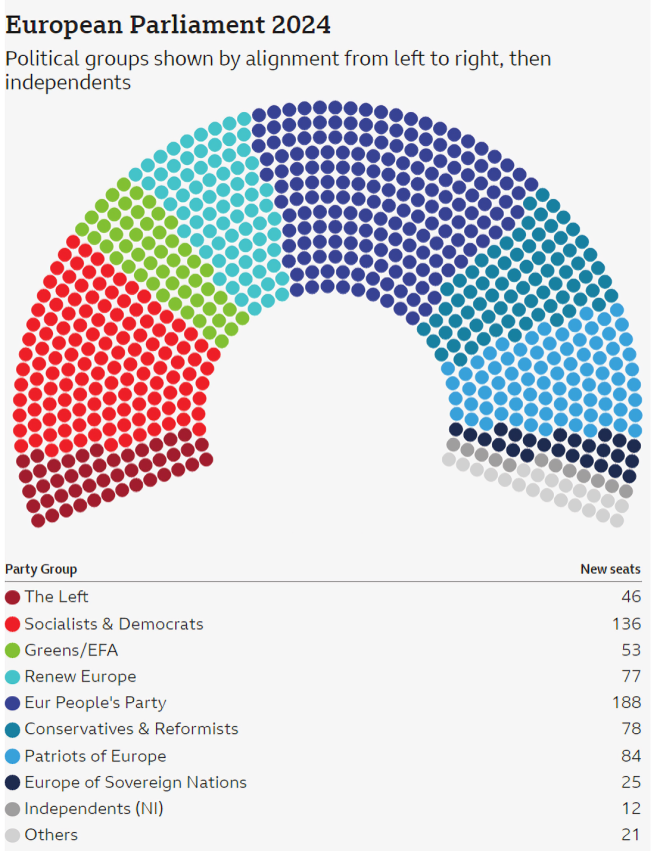Ursula von der Leyen Secures Second Term as President of EU Commission
In a pivotal moment for European politics, Ursula von der Leyen has secured her position as President of the European Commission for a second five-year term. The re-election, held in Strasbourg, marks a continuation of her stewardship over the European Union's executive arm.
The secret ballot among Members of the European Parliament (MEPs) saw von der Leyen garner an impressive 401 votes, surpassing the required majority by 41. This resounding victory reaffirms the confidence placed in the centre-right European People's Party (EPP) candidate, who first assumed the role in 2019.
Visibly moved by the outcome, von der Leyen expressed her gratitude, interpreting the result as a robust endorsement of her leadership. In her address to the MEPs before the vote, she outlined her vision for the upcoming term, focusing on enhancing European defence capabilities through increased military expenditure and reinforcing the bloc's commitment to addressing climate change.
Von der Leyen also tackled contentious issues, highlighting her concerns about the rise of what she termed "demagogues and extremists," whom she sees as a threat to the European way of life. In a call for unity, she pledged to collaborate with "all democratic forces" within the European Parliament. "The last five years have shown our collective potential," she declared. "Let's embark on this journey once more. Let's choose resilience."

Although von der Leyen's nomination received approval at an EU summit last month, not all member states unequivocally supported her. Leading up to the parliamentary vote, she secured backing from her own EPP group, as well as the Socialist & Democrats, the liberal Renew, and the Greens. However, this support was not unanimous within these factions.
The far-right contingent, including the newly formed Patriots for Europe group, staunchly opposed granting von der Leyen a second term. The final vote count revealed 284 MEPs voted against her re-election.
Despite this opposition, the broader European political landscape responded positively to the outcome. German Chancellor Olaf Scholz characterized the result as a "clear indication of our capacity to act within the European Union, particularly in challenging times."
The EU's political landscape is poised for further changes, as two other key positions are filled. António Costa, formerly Portugal's Socialist prime minister, is set to lead the European Council, while Estonia's Kaja Kallas has resigned as prime minister to take on the role of the EU's chief diplomat.
As von der Leyen begins her second term, she faces the challenge of navigating the EU through a complex geopolitical landscape, managing internal divisions, and addressing urgent issues like climate change and security. Her re-election signifies a vote of confidence in her ability to guide the European Commission through turbulent times, yet the road ahead remains fraught with challenges testing both her leadership and the EU's unity.
-
17:50
-
17:20
-
17:00
-
17:00
-
16:40
-
16:20
-
16:00
-
15:40
-
15:20
-
14:50
-
14:20
-
13:50
-
13:20
-
12:50
-
12:45
-
12:30
-
12:20
-
12:15
-
12:00
-
11:50
-
11:45
-
11:30
-
11:20
-
11:00
-
10:50
-
10:30
-
10:20
-
10:00
-
10:00
-
09:50
-
09:30
-
09:20
-
09:00
-
08:50
-
08:30
-
08:20
-
08:00
-
07:50
-
07:40
-
07:20
-
07:00


